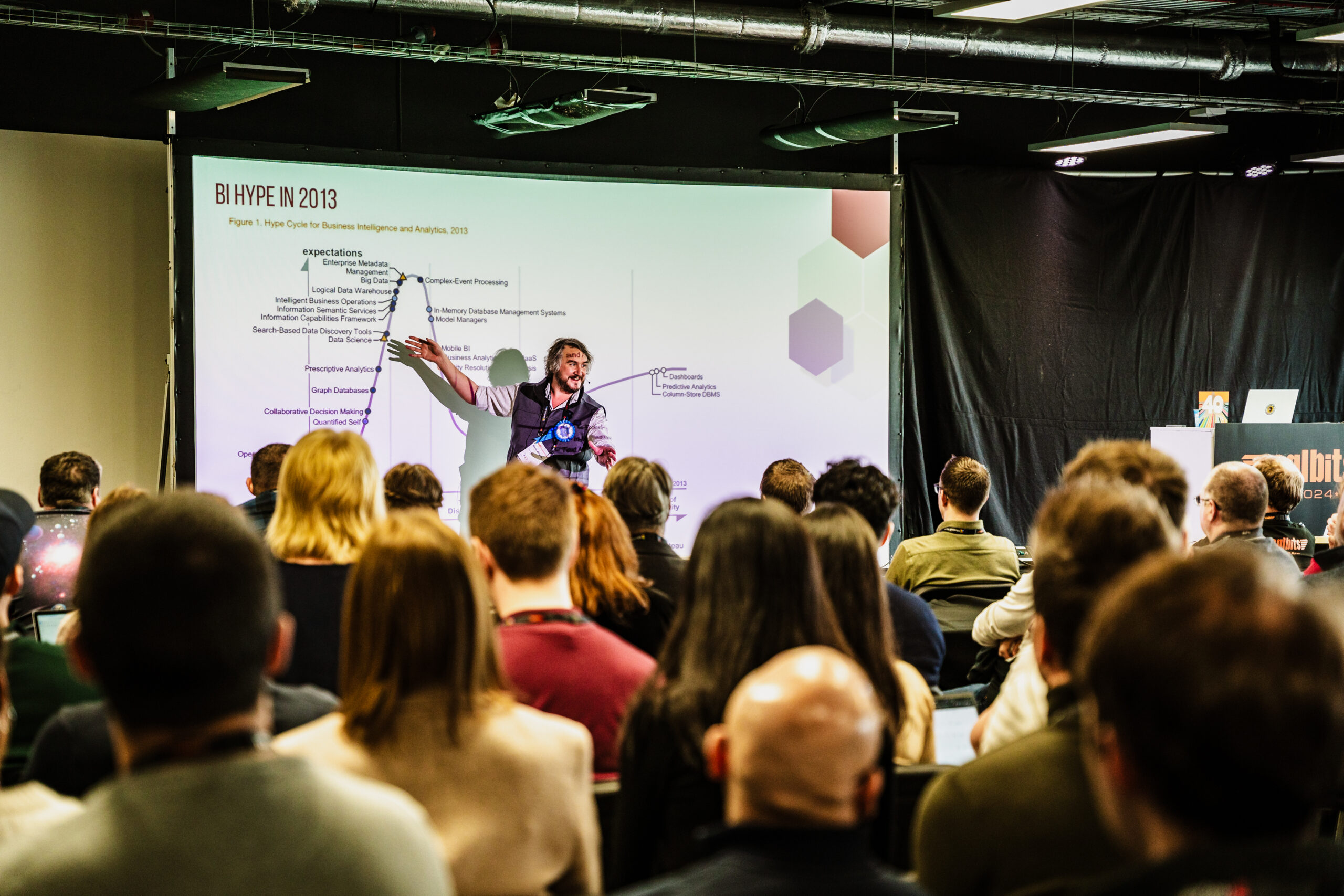SQLBits encompasses everything from in-depth technical immersions to the enhancement of valuable soft skills. The full agenda will be announced in the spring; in the meantime check out the timetable and content we cover below.

2024 Training Days
Presenting 2024’s selection of training days, encompassing a deep dive into a range of subjects with some of the best data trainers in the world.
- 08:00 Registration opens and breakfast served.
- All training days run simultaneously across the venue from 09:00 – 17:00 with co-ordinated breaks.
- All training days include regular refreshment breaks and a lunch stop to rest, recharge, and chat to fellow delegates.
- No evening events planned, but if you’re staying over the night beforehand, why not join us in the Aviator on Monday night to meet the training day speakers for an informal drinks reception.
Upgrade, Migrate, Consolidate: The SQL Server Lifecycle
Description
The last decade has brought about a great deal of change in the IT world. In that time, there have been 5 versions of SQL Server released, with a sixth on its way (not to mention the regular operating system releases). Microsoft is pushing to ever more frequent releases, with the pinnacle of this being the Azure offerings, where change is almost a daily thing. This means that upgrading and migrating is going to be a big topic for many people, especially with the impending "end of life" of SQL 2005 in April 2016.
But before we dive into actually upgrading or migrating, we need to do a little research into what we can expect from a newer version of SQL Server.
André and William will spend the day with you going through the different aspects of SQL Server lifecycle management:
- How to identify and catalogue the SQL Servers in your network (you'd be surprised at how many rogue servers are out there!)
- How to see which features you are using to decide which future version and edition will be required
- How to identify possible compatibility issues early on
- How to implement best practices for all SQL Servers and ensure those best practices remain in place
- How to decide if on-premises or cloud services is the best option
- How to identify and investigate performance issues in your SQL Server environment
We will close the day out with an open discussion about the topics discussed and how they affect your environment.
You will leave the training day with a clear understanding of how to approach managing different versions of SQL Server. You will also be equipped with the knowledge to approach any upgrade or migration in a clear and structured way.
But before we dive into actually upgrading or migrating, we need to do a little research into what we can expect from a newer version of SQL Server.
André and William will spend the day with you going through the different aspects of SQL Server lifecycle management:
- How to identify and catalogue the SQL Servers in your network (you'd be surprised at how many rogue servers are out there!)
- How to see which features you are using to decide which future version and edition will be required
- How to identify possible compatibility issues early on
- How to implement best practices for all SQL Servers and ensure those best practices remain in place
- How to decide if on-premises or cloud services is the best option
- How to identify and investigate performance issues in your SQL Server environment
We will close the day out with an open discussion about the topics discussed and how they affect your environment.
You will leave the training day with a clear understanding of how to approach managing different versions of SQL Server. You will also be equipped with the knowledge to approach any upgrade or migration in a clear and structured way.
Learning Objectives
Things I will need
Tech Covered
performance, Azure